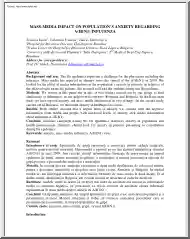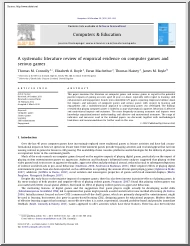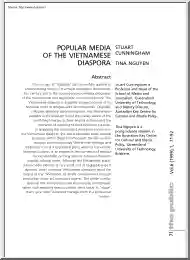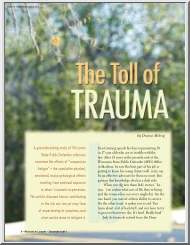No comments yet. You can be the first!
What did others read after this?
Content extract
Source: http://www.doksinet AP Comparative Government and Politics Syllabus Mrs. McGrath Students in Advanced Placement Comparative Government and Politics will acquire knowledge of facts and concepts pertaining to the governments and politics of Great Britain, Russia, China, Mexico, Nigeria, and Iran. We will work to develop an understanding of patterns of political processes and behavior and their consequences. Throughout the course, students will compare and contrast political institutions and processes across countries and derive generalizations concerning various governmental systems. Students will be expected to: *Complete required reading assignments on time *Discuss and debate various issues *Analyze and interpret course material in writing in a timely mannerlate work will result in reduced credit *Keep a complete and well-organized notebook/binder *Complete summary Study Guides for each country discussed *Complete an annotated bibliography *Pass multiple choice and essay
tests and quizzes Reading: Textbook: AP Comparative Government and Politics: An Essential Coursebook and Study Guide 5th edition by Ethel Wood Supplemental readings chosen by the instructor from a variety of sources including current periodicals Students are urged to keep informed of current political developments in the countries dealt with in the course through reading of print or online newspapers and journals. This will be particularly helpful in preparing the annotated bibliography. Source: http://www.doksinet The topics listed in the outline will also serve as the basis for our study of each of the six countries dealt with in this course Summary Outline for AP Comparative Government and Politics I. II. III. IV. V. The Sources of Public Authority and Political Power a. The nature and sources of government legitimacy b. Historical evolution of national political traditions c. Political culture and socialization Society and Politics a. Social Cleavages b. Depth and
persistence of such cleavages c. Political consequences of social cleavages Citizen and State a. Beliefs citizens hold about their government and leaders b. The ways citizens participate in political life c. The factors that influence citizens to differ from one another in terms of political beliefs and behaviors Political framework a. Types of regimes b. The scope of government activity c. Institutions of national government d. Political parties and interest groups e. Relations between institutions of national government and supranational organizations f. Political elites Political and Economic Change a. Sources of change b. The nature of political and economic change c. The consequences of political and economic change Source: http://www.doksinet Course Outline: I. Unit I: Introduction Topics of Study 1. Comparative Theory 2. System Models 3. Themes for Comparison (Economic Liberalization, Democratization, Conflict, Challenges to the State, Globalization) 4. Classification
Systems 5. Definitions (State, Government, Nation, Regime) 6. Globalization 7. Democratization Debate: Do the benefits of globalization outweigh the costs? Class Handouts On the Following Topics to Read and Discuss: Freedom House Overviews of Six Countries, Globalization Index, Pros and Cons of Globalization, Failed State Index II. Unit II: The United Kingdom Topics of Study 1. Characteristics of Industrialized Democracies 2. Compare and Contrast the UK and the US 3. Constitutional Issues in the UK 4. Political Institutions 5. Parties and Participation 6. Devolution and Potential Scottish Independence and Conflict in Northern Ireland 7. Structure of the European Union Videos: Question Time in the House of Commons; Northern Ireland Conflict Class Handouts On The Following Topics To Read and Discuss: Constitutional Reform and Current Issues in the United Kingdom Test: Multiple Choice and Short EssayUnit I and II Source: http://www.doksinet III. Unit III: Russia Topics of Study 1.
Philosophical Origins of the Soviet Union 2. The Party State 3. Dissolution of the USSR-Constitution of 1993 4. Recent Constitutional Changes 5. Political Culture and Civil Society 6. Energy Politics 7. Chechnya Videos: Biography: Vladimir Putin; Czar Putin Debate: Will Vladimir Putin finish his current term as president or will he be forced to resign? Class Handouts On The Following Topics To Read and Discuss: Vladimir Putin, Recent Elections in Russia, and Current Issues in Russia Test: Multiple Choice and Short Essay IV. Unit IV: China Topics of Study 1. China’s Ideology and Historical Background 2. How China is Ruled 3. Reform 4. Challenges to the State 5. Political Culture and Civil Society Videos: Tank Man; China From the Inside Debate: Is China A Threat to International Stability? Class Handouts On The Following Topics To Read and Discuss: What does China want, Maoism and Recent Changes in China, and Current Issues in China Test: Multiple Choice and Short Essay Chart: First
Comparative Chart with the United Kingdom, Russia, and China Source: http://www.doksinet V. Unit V: Mexico Topics of Study 1. Issues Facing the Third World 2. History of Mexican Politics 3. Mexican Political Institutions 4. Citizen Participation and Socialization 5. Reform 6. Policy Issues Class Handouts On the Following Topics to Read and Discuss: Drug Violence, Policy Changes in Mexico, and Current Issues in Mexico. VI. Unit VI: Nigeria Topics of Study 1. History of Nigeria 2. Nigerian Constitution 3. Citizen Participation 4. Religious and Regional Issues 5. The Role of Oil Video: Islam from Frontline Debate: Will Nigeria, in the next ten years, move closer to a fully democratic system or follow a pattern of political instability and military rule? Class Handouts on the Following Topics To Read and Discuss: Democracy in Nigeria, Current Issues in Nigeria Test: Multiple Choice and Short Essay Source: http://www.doksinet VII. Unit VII: Iran Topics of Study 1. Historical
Background 2. Institutions of the Islamic Republic 3. Political Culture and Socialization 4. Nuclear Program 5. Challenges to the State Video: A Death in Tehran Class Handouts on the Following Topics To Read and Discuss: Politics in Iran, the role of the Supreme Leader in Iran, and Current Issues in Iran Chart: Second Comparative Chart with Nigeria, Mexico, and Iran Test: Final Exam A Note on the Annotated Bibliography: (108 points) Students will collect 12 current articles pertaining to the governments and politics of the countries we will be studying this semester. You must have two articles pertaining to each country. Each article must deal with one of the 5 themes of Comparative Government--Economic Liberalization, Democratization, Conflict, Challenges to the State, Globalizationand each theme must be used at least once. Students will place these articles, according to country, in a binder or folder. Students will summarize the articles, giving complete bibliographic information
for each article. Summaries must include an explanation of how the article is connected to one of the themes identified above. Some online sources of articles are as follows: British Broadcasting Companywww.bbccom Cable News Networkwww.cnncom The Economist magazine is also an excellent source
tests and quizzes Reading: Textbook: AP Comparative Government and Politics: An Essential Coursebook and Study Guide 5th edition by Ethel Wood Supplemental readings chosen by the instructor from a variety of sources including current periodicals Students are urged to keep informed of current political developments in the countries dealt with in the course through reading of print or online newspapers and journals. This will be particularly helpful in preparing the annotated bibliography. Source: http://www.doksinet The topics listed in the outline will also serve as the basis for our study of each of the six countries dealt with in this course Summary Outline for AP Comparative Government and Politics I. II. III. IV. V. The Sources of Public Authority and Political Power a. The nature and sources of government legitimacy b. Historical evolution of national political traditions c. Political culture and socialization Society and Politics a. Social Cleavages b. Depth and
persistence of such cleavages c. Political consequences of social cleavages Citizen and State a. Beliefs citizens hold about their government and leaders b. The ways citizens participate in political life c. The factors that influence citizens to differ from one another in terms of political beliefs and behaviors Political framework a. Types of regimes b. The scope of government activity c. Institutions of national government d. Political parties and interest groups e. Relations between institutions of national government and supranational organizations f. Political elites Political and Economic Change a. Sources of change b. The nature of political and economic change c. The consequences of political and economic change Source: http://www.doksinet Course Outline: I. Unit I: Introduction Topics of Study 1. Comparative Theory 2. System Models 3. Themes for Comparison (Economic Liberalization, Democratization, Conflict, Challenges to the State, Globalization) 4. Classification
Systems 5. Definitions (State, Government, Nation, Regime) 6. Globalization 7. Democratization Debate: Do the benefits of globalization outweigh the costs? Class Handouts On the Following Topics to Read and Discuss: Freedom House Overviews of Six Countries, Globalization Index, Pros and Cons of Globalization, Failed State Index II. Unit II: The United Kingdom Topics of Study 1. Characteristics of Industrialized Democracies 2. Compare and Contrast the UK and the US 3. Constitutional Issues in the UK 4. Political Institutions 5. Parties and Participation 6. Devolution and Potential Scottish Independence and Conflict in Northern Ireland 7. Structure of the European Union Videos: Question Time in the House of Commons; Northern Ireland Conflict Class Handouts On The Following Topics To Read and Discuss: Constitutional Reform and Current Issues in the United Kingdom Test: Multiple Choice and Short EssayUnit I and II Source: http://www.doksinet III. Unit III: Russia Topics of Study 1.
Philosophical Origins of the Soviet Union 2. The Party State 3. Dissolution of the USSR-Constitution of 1993 4. Recent Constitutional Changes 5. Political Culture and Civil Society 6. Energy Politics 7. Chechnya Videos: Biography: Vladimir Putin; Czar Putin Debate: Will Vladimir Putin finish his current term as president or will he be forced to resign? Class Handouts On The Following Topics To Read and Discuss: Vladimir Putin, Recent Elections in Russia, and Current Issues in Russia Test: Multiple Choice and Short Essay IV. Unit IV: China Topics of Study 1. China’s Ideology and Historical Background 2. How China is Ruled 3. Reform 4. Challenges to the State 5. Political Culture and Civil Society Videos: Tank Man; China From the Inside Debate: Is China A Threat to International Stability? Class Handouts On The Following Topics To Read and Discuss: What does China want, Maoism and Recent Changes in China, and Current Issues in China Test: Multiple Choice and Short Essay Chart: First
Comparative Chart with the United Kingdom, Russia, and China Source: http://www.doksinet V. Unit V: Mexico Topics of Study 1. Issues Facing the Third World 2. History of Mexican Politics 3. Mexican Political Institutions 4. Citizen Participation and Socialization 5. Reform 6. Policy Issues Class Handouts On the Following Topics to Read and Discuss: Drug Violence, Policy Changes in Mexico, and Current Issues in Mexico. VI. Unit VI: Nigeria Topics of Study 1. History of Nigeria 2. Nigerian Constitution 3. Citizen Participation 4. Religious and Regional Issues 5. The Role of Oil Video: Islam from Frontline Debate: Will Nigeria, in the next ten years, move closer to a fully democratic system or follow a pattern of political instability and military rule? Class Handouts on the Following Topics To Read and Discuss: Democracy in Nigeria, Current Issues in Nigeria Test: Multiple Choice and Short Essay Source: http://www.doksinet VII. Unit VII: Iran Topics of Study 1. Historical
Background 2. Institutions of the Islamic Republic 3. Political Culture and Socialization 4. Nuclear Program 5. Challenges to the State Video: A Death in Tehran Class Handouts on the Following Topics To Read and Discuss: Politics in Iran, the role of the Supreme Leader in Iran, and Current Issues in Iran Chart: Second Comparative Chart with Nigeria, Mexico, and Iran Test: Final Exam A Note on the Annotated Bibliography: (108 points) Students will collect 12 current articles pertaining to the governments and politics of the countries we will be studying this semester. You must have two articles pertaining to each country. Each article must deal with one of the 5 themes of Comparative Government--Economic Liberalization, Democratization, Conflict, Challenges to the State, Globalizationand each theme must be used at least once. Students will place these articles, according to country, in a binder or folder. Students will summarize the articles, giving complete bibliographic information
for each article. Summaries must include an explanation of how the article is connected to one of the themes identified above. Some online sources of articles are as follows: British Broadcasting Companywww.bbccom Cable News Networkwww.cnncom The Economist magazine is also an excellent source




